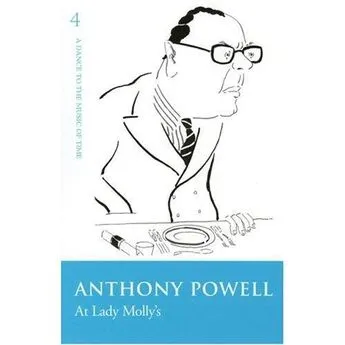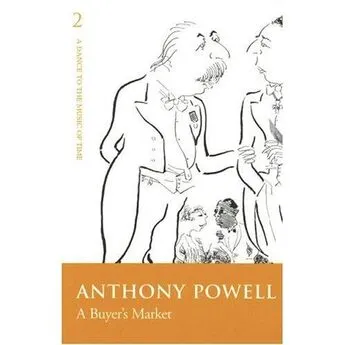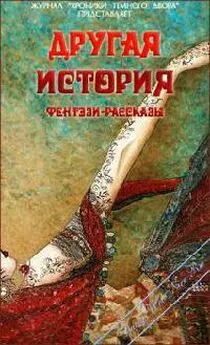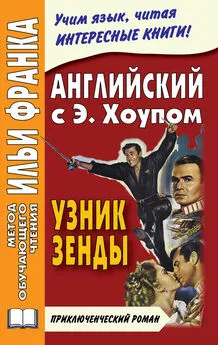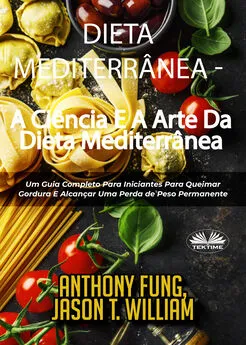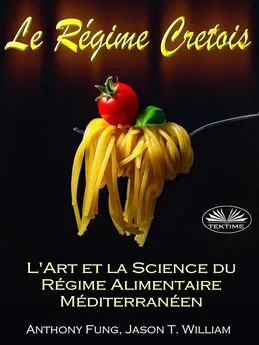Anthony Powell - At Lady Mollys
- Название:At Lady Mollys
- Автор:
- Жанр:
- Издательство:неизвестно
- Год:2005
- ISBN:нет данных
- Рейтинг:
- Избранное:Добавить в избранное
-
Отзывы:
-
Ваша оценка:
Anthony Powell - At Lady Mollys краткое содержание
A Dance to the Music of Time — his brilliant 12-novel sequence, which chronicles the lives of over three hundred characters, is a unique evocation of life in twentieth-century England.
The novels follow Nicholas Jenkins, Kenneth Widmerpool and others, as they negotiate the intellectual, cultural and social hurdles that stand between them and the “Acceptance World.”
At Lady Mollys - читать онлайн бесплатно полную версию (весь текст целиком)
Интервал:
Закладка:
Erridge laughed constrainedly, and took a gulp of gin, involuntarily making a grimace as he did so. This seemed to indicate that he belonged to the class of egoist who dislikes the taste of food and drink. He would probably have abstained from alcohol entirely had not his special approach to life made a duty of mixing on equal terms with people round him. He seemed now a little put out by Quiggin’s lack of affection for the pump. Having installed the equipment himself, like most innovators or, indeed, most owners of property, he did not care for the disparagement of his organisation or possessions; at least on the part of persons other than himself.
‘1 met some of your sisters the other day,’ I said.
Erridge’s face clouded at these words, while Quiggin gritted his teeth in irritation. This, as intended, was nothing short of a declaration that I knew more about Erridge and his background than Quiggin might think desirable, and also was not prepared to move solely upon lines laid down by Quiggin himself. Indeed, Quiggin may have hoped that the name ‘Warminster’ inarticulately mumbled with the emphasis on the prefix ‘Alf, would in itself at the time convey little or nothing; later, he could please himself how much he revealed about his current patron. There was a moment’s pause before Erridge answered.
‘Oh, yes — yes—’ he said. ‘Which — which ones—?’
‘Priscilla and then Frederica, who took me to see Norah.’
‘Oh, yes,’ said Erridge. ‘Priscilla — Frederica — Norah.’
He spoke as if he had now begun to remember them quite well. The manner in which he screwed up his face, while making this effort of memory recalled his uncle, Alfred Tolland. Although, at first sight, it would have been difficult to think of two men whose outward appearance was superficially more different, something deeper remained in common. If Alfred Tolland had grown a beard, dressed in rags and slept out all night, or if Erridge had washed, shaved and assumed a stiff collar and dark suit, something more than a passing resemblance might have become evident. Indeed, Erridge’s features had assumed some of that same expression of disappointment which marked his uncle’s face when Molly Jeavons teased him; with the contrast that, in Erridge, one was reminded of a spoilt child, while Alfred Tolland’s countenance was that of a child resigned from an early age to teasing by grown-ups. There could be no doubt that Erridge recoiled from the invocation of his immediate family. The world of his relations no doubt caused him chronic dissatisfaction. I saw no reason, for my own part, why he should be let off anything. If he lent Quiggin the cottage, he must put up with Quiggin’s guests; especially those invited primarily to help Mona become a film star.
Silence fell. Erridge looked out towards the uncurtained window beyond which night had already fallen. Unlike his uncle, he had no wish to discuss his family. After all, it was perhaps hard that he should be forced to talk about them merely to plague Quiggin, though to try the experiment had been tempting. Quiggin himself had become increasingly restive during this interchange. Mona had spoken little, though undoubtedly cheered by the visit. Quiggin seemed to judge, perhaps correctly, that Erridge was displeased by all this chit-chat, and began to mention tentatively executive matters existing between them; although at the same time unquestionably anxious that Erridge should leave the cottage as soon as possible. However, Erridge in spite of his own unwillingness to make conversation, showed equally no desire to move. He took an ancient leather tobacco-pouch from one of his coat pockets and began to roll himself a cigarette. When he had done this — not very successfully, for a good deal of tobacco protruded from each end of the twist of rice-paper — he licked the edge to seal it and lit the rather flimsy result of these labours. The cigarette seemed not to ‘draw’ well, so after a minute or two he threw it into the grate. Sipping the drink Mona had given him, he again made a face, tipping back the kitchen chair upon which he sat until it cracked ominously. He sighed deeply.
‘I was wondering whether it would be better for you to be secretary instead of Craggs,’ he said.
‘What makes you think so?’ asked Quiggin cautiously.
‘Craggs always seems to have something else to do. The fact is, Craggs is so keen on running committees that he can never give any of them the right amount of attention. He is on to German refugees now. Quite right, of course, that something should be done. But last week I couldn’t get hold of him because he was occupied with Sillery about the embargo on arms to Bolivia and Paraguay. Then there’s the “Smash Fascism” group he is always slipping off to. He would like us to pay more attention to Mosley. He wants to be doing the latest thing all the time, whether it’s the independence of Catalonia or free meals for school-children.’
‘Anti-fascism comes first,’ said Quiggin. ‘Even before pacifism. In my opinion, the Sedition Bill can wait. After all, didn’t Lenin say something about Liberty being a bourgeois illusion?’
Quiggin had added this last remark in not too serious a tone, but Erridge seemed to take it seriously, shifting about uncomfortably on his hard wooden seat as if he were a galley-slave during an interval of rest.
‘Of course,’ he said. ‘I know he did.’
‘Well, then?’
‘I don’t always think like the rest of you about that.’
He rose suddenly from his chair.
‘I want to have a talk about the magazine some time,’ he said. ‘Not now, I think.’
‘Oh, that,’ said Quiggin.
He sounded as if he would have preferred ‘the magazine’ not to have been so specifically named.
‘What magazine?’ asked Mona.
‘Oh, it’s nothing, ducks,’ said Quiggin. ‘Just an idea Alf and I were talking about.’
‘Are you going to start a magazine?’
Mona sounded quite excited.
‘We might be,’ said Erridge, moving his feet about.
‘It is all very vague still,’ said Quiggin, in a voice that closed the matter.
Mona was not to be so easily silenced. Whether her interest had been genuinely aroused or whether she saw this as a means expressing her own views or teasing Quiggin was not clear.
‘But how thrilling,’ she said. ‘Do tell me all about it, Alf.’
Erridge smiled in an embarrassed way, and pulled at his beard.
‘It is all very vague, as J.G. has explained,’ he said. ‘Look here, why not come to dinner tomorrow night? We could talk about it then.’
‘Or perhaps later in the week,’ said Quiggin.
‘I’ve got to go away again on Monday,’ Erridge said.
There was a pause. Quiggin glared at me.
‘I expect you will have to go back to London on Sunday night, won’t you, Nick?’ he said.
‘Oh, do come too,’ said Erridge, at once. ‘I’m so sorry. Of course I meant to ask you as well if you are staying until then.’
He seemed distressed at having appeared in his own eyes bad mannered. I think he lived in a dream, so shut off from the world that he had not bothered for a moment to consider whether I was staying with Quiggin, or had just come in that night for a meal. Even if he realised that I was staying, he was probably scarcely aware that I might still be there twenty-four hours later. His reactions placed him more and more as a recognisable type, spending much of his time in boredom and loneliness, yet in some way inhibited from taking in anything relevant about other people: at home only with ‘causes’.
‘The trains are not too good in the morning,’ said Quiggin. ‘I don’t know when you have to be at the Studio—’
‘The Studio is closed all this week owing to the strike,’ I said. ‘So I had thought of going up on Monday morning in any case — if that is all right.’
‘Oh, are you on strike?’ asked Erridge, brightening up at once, as if it were for him a rare, unexpected pleasure to find himself in such close contact with a real striker. ‘In that case you simply must come and have a meal with me.’
‘I’d love to, but it is not me on strike, I am afraid — the electricians.’
‘Oh, yes, the strike, of course, the strike,’ said Quiggin, as if he himself had organised the stoppage of work, but, in the light of his many similar responsibilities, had forgotten about its course. ‘In that case we would all like to come, Alf. It’s an early supper, as I remember.’
So far as Quiggin was concerned, it had been one of those great social defeats; and, in facing the fact squarely, he had done something to retrieve his position. Presumably he was making plans for Erridge to put up the money to install him as editor of some new, Left Wing magazine. It was perhaps reasonable that he should wish to keep their plans secret in case they should miscarry. However, now that the dinner had been decided upon, he accepted the matter philosophically. Erridge seemed to have no similar desire to discuss matters in private. He was, I think, quite unaware of Quiggin’s unwillingness to allow others to know too much of their life together. I could see, too, that he was determined not to abandon the idea that I was myself a striker.
‘But you support them by not going,’ he said. ‘Yes, come early. You might possibly like to look round the house — though there really is nothing to see there that is of the slightest interest, I’m afraid.’
He moved once more towards the door, sunk again in deep despair, perhaps at the thought of the lack of distinction of his house and its contents. Shuffling his espadrilles against the stone floor, he caught his foot in the mat, swore gently and a trifle self-consciously, as if aspiring to act as roughly as he was dressed, and left with hardly a further word. Quiggin accompanied him to the door, and shouted a farewell. Then he returned to the room in which we sat. No one spoke for a minute or two. Quiggin slowly corked up the gin bottle, and put it away in a cupboard.
‘Alf is rather sweet, isn’t he?’ said Mona.
‘Alf is a good fellow,’ agreed Quiggin, a shade sourly.
‘Where does he live?’ I asked.
‘Thrubworth Park. It is a big house heyond the trees you see from our windows.’
Quiggin had been put out by this sudden appearance of Erridge. It had been a visit for which he was unprepared: a situation he had not bargained for. Now he seemed unable to decide what line he himself should take about his friend.
‘How much do you know about him?’ he asked at last.
‘Hardly anything, except that he is said to have been a tramp. And, as I said just now, I met some of his sisters the other day.’
‘Oh, yes,’ said Quiggin, impatiently. ‘I am not at all interested in the rest of his family. He never sees anything of them, anyway. A lot of social butterflies, that’s all they are. Just what you might expect. Alf is different. I don’t know what you mean by being a tramp, though. Where did you get that story? I suppose you think everyone is a tramp who wears a beard.’
‘Aren’t they? Some of his relations told me he had been experimenting in life as a tramp.’
‘Just the sort of thing they would put about,’ said Quiggin. ‘Isn’t it like people of that class? It is true he has been making some study of local condidons. I don’t think he stayed anywhere very luxurious, but he certainly didn’t sleep in casual wards.’
‘His relations suppose he did. I think they rather admire him for it.’
‘Well, they suppose wrong,’ said Quiggin. ‘Alf is a very good fellow, but I don’t know whether he is prepared to make himself as uncomfortable as that.’
Читать дальшеИнтервал:
Закладка:
